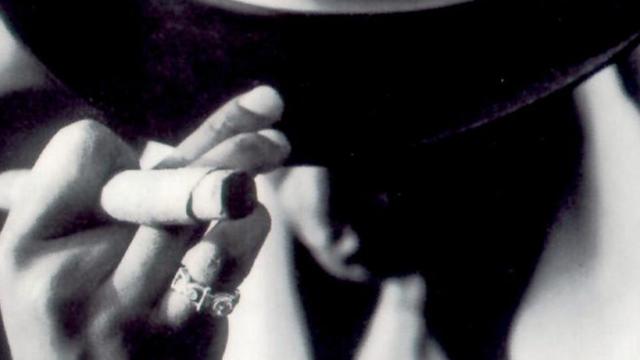‘Ownership’ has become a prickly concept in the world of NFTs, with many of those selling NFTs not really owning the images and concepts being auctioned off to the highest bidder. Until now there hasn’t been any real legal challenges attempting to define digital ownership in the modern age (or what rights NFTs grant owners), but a new lawsuit lodged against Roc-A-Fella Records studio co-founder Damon Dash for reportedly selling a Jay-Z album as an NFT could change that.
The case, filed in the United States District Court for the Southern District of New York, was lodged by Roc-A-Fella Records itself, which alleges Dash “saw an opportunity in [the] emerging NFT market” and “sought to cash in by auctioning the copyright to Reasonable Doubt [Jay-Z’s breakthrough 1996 album] as an NFT”.
Dash’s intention to mint and sell Reasonable Doubt as an NFT was announced in a press release, where the claim was made that the Reasonable Doubt sale was “one of the most significant NFT auctions to date” because it would transfer “the rights to all future revenue generated by the album from Damon Dash to the auction winner”.
[related_content first=”1705428″]
The announcement also claimed the sale would “set a precedent for how artistically created value and its ownership can be proven, transferred, and monetised.” Essentially, the sale concerned the royalties and copyright behind the album — of which Dash only owns a “1/3 equity interest in”.
Should the sale have gone through, it would have allegedly transferred the complete copyright ownership of the album to the highest bidder.
A sale date was initially pencilled in for June 23 via NFT platform SuperFarm Foundation, but it was ultimately cancelled after Roc-A-Fella contacted SuperFarm to explain why the sale was improper.
The lawsuit was later lodged against Dash for allegedly attempting to sell Reasonable Doubt without proper claim to the album, and also for allegedly attempting to sell his ownership interest in the album’s copyright, which is not legally transferrable.
Post-filing, Dash told TMZ he was actually trying to sell his share in Roc-A-Fella after Jay-Z low-balled him, and not the copyright to the album itself. He further claimed the lawsuit was a scare tactic attempting to force the sale of his share in the company.
Whatever the outcome, it’s certainly a case everyone should watch with great interest.
NFT ownership is a concept yet to be tackled on the legal stage, and while this case certainly has complications over and above your standard NFT sale, it could have serious implications for the sale of digital rights and NFTs around the world.
Copyright is a legally complex issue worldwide, and one likely to be a major hurdle should NFT ownership become more of a mainstream issue in the global stage.
